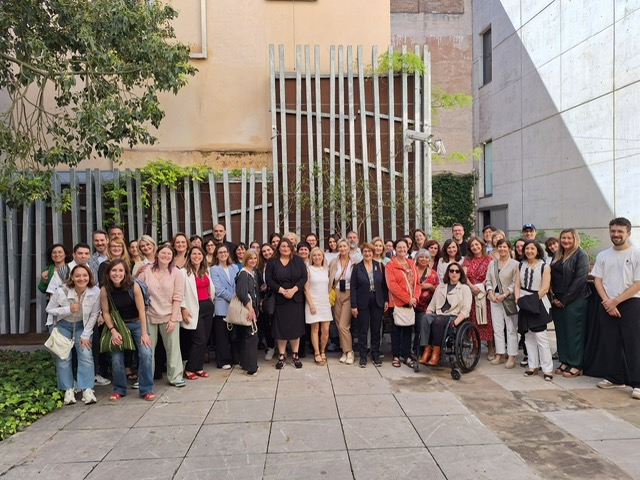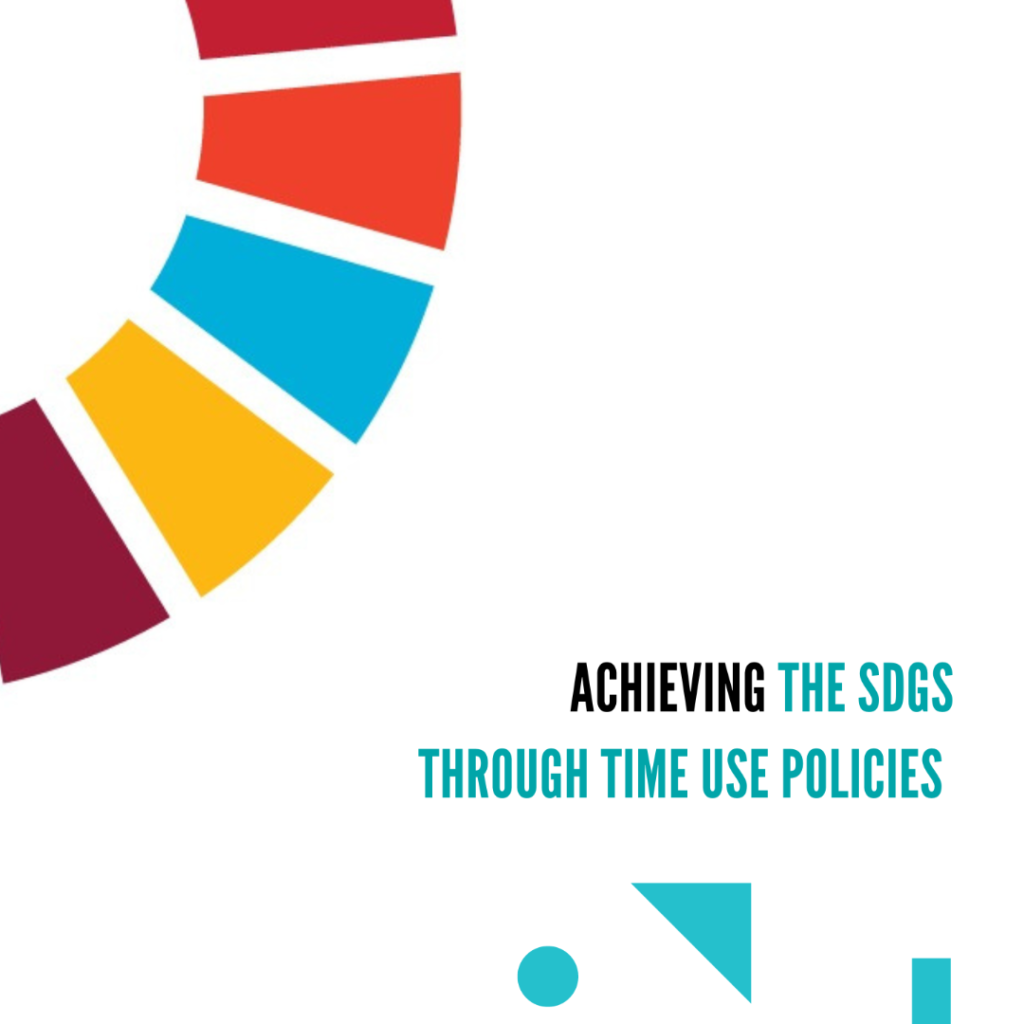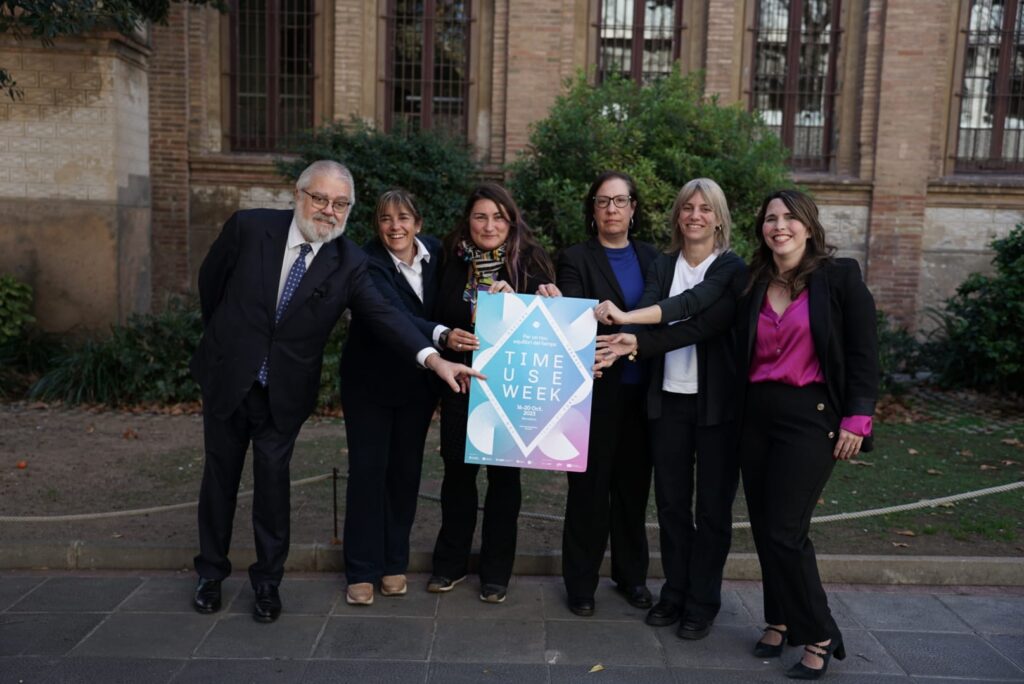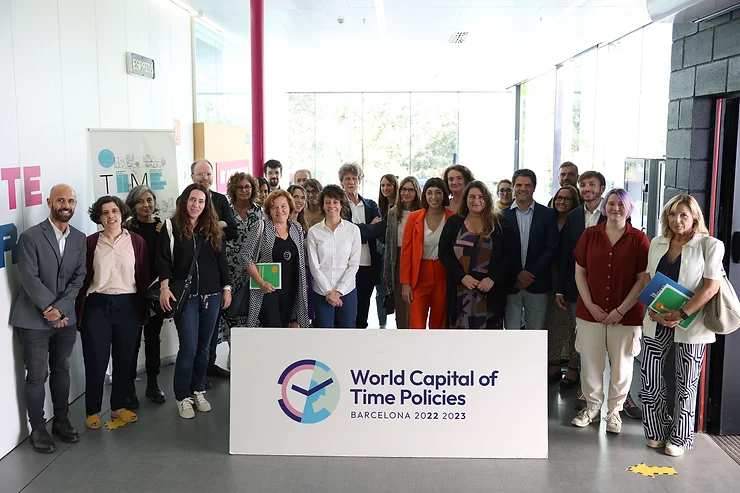Barcelona Declaration On Time Policies
The Barcelona Declaration on Time Policies represents a significant advancement in urban governance and social policy.
The Declaration serves as a pioneering instrument in public policy, designed to elevate the discourse on time organization to international and urban political agendas. It promotes research and development of evidence-based time policies, fosters collaboration between institutions, cities, and nations on time-related initiatives, and encourages the integration of time considerations into urban planning and social policies.
An innovative declaration that unites diverse demands for time policies and frames the right to time holistically. It seeks to reshape our relationship with time, fostering a more balanced and fulfilling life for everyone.
A coalition of over 200 signatories from around the world committed to advancing time policies on a global scale, representing local and regional governments, the research community, social and economic stakeholders, and international organizations.
Endorsed by multidisciplinary stakeholders, including local and regional governments, researchers, social and economic actors, and international organizations. These diverse groups combine their expertise to effectively address time scarcity through comprehensive time policies.
Endorsing the Declaration is an ongoing, open process that involves two steps: first, express your interest by completing the form below. Second, sign the template letter we will send you to confirm your institution’s endorsement.
While its name pays homage to the city of its origin, the Declaration’s scope extends far beyond Barcelona’s borders, with organizations from across the globe embracing its principles. It commits signatory institutions to the implementation of innovative time policies aimed at enhancing citizen well-being and quality of life.
At its core, the Declaration recognizes the right to time as a new right for the 21st Century. It aims to develop strategies for equitable time distribution across diverse sectors and populations, while implementing innovative time policies that address modern challenges. By enhancing work-life balance through evidence-based policy interventions, the Declaration seeks to improve the overall quality of life for all using sustainability, equality, productivity, and health as core principles.
The Declaration's 10 Commitments
All signatories have agreed, within their areas of competence and capabilities, to commit to

Raising awareness, developing, and implementing time policies
that advance towards a healthier, more equal, more productive, and sustainable society, which guarantees the right to time as a fundamental right of all citizens and distributes it equitably.

Promoting dialogue and working with all relevant sectors within each area
—including public authorities, economic and social organizations, civil society, and academia— in the formulation, implementation, and evaluation of all policies, programmes, and initiatives; seeking consistency between them.

Encouraging interdepartmental and intersectoral coordination
at international, European, national, regional, municipal, and community levels, integrating time policy considerations into social, gender, economic, and environmental policies, programmes, and initiatives, including those related to Sustainable Development Goals (SDGs), the European Green Deal, the European Social Pillar, and the “Future of Europe” process.

Participating in the development of the work plan established for the corresponding scope of work in the period 2024-2026
generating political consensus and making recommendations for a global time policy agenda and developing an urban time agenda.

Reviewing and modifying existing policies, plans, and regulations
to implement time policy recommendations in all responsible institutions and organizations, based on this consensus.

Promoting and supporting Time Use Week
as an annual, international, interdisciplinary, and inter-institutional event to advance time policies and share progress in time policies and research.

Continuing to collaborate to consolidate the Local and Regional Governments Time Network
as a dynamic network to share good practices on local and urban time policies, share recommendations and important demands, and improve the visibility of local and regional time policies and policy networks.

Promoting, conducting, and sharing relevant time-use research
from all fields to contribute to existing knowledge. For this reason, continuing to cooperate with IATUR (the International Association for Time Use Research) to find greater integration between research and time policies.

Facilitating debate between the scientific community and the responsible political personalities involved in the end of seasonal clock changes
establishing health and well-being as the primary criteria to guarantee individual freedom.



